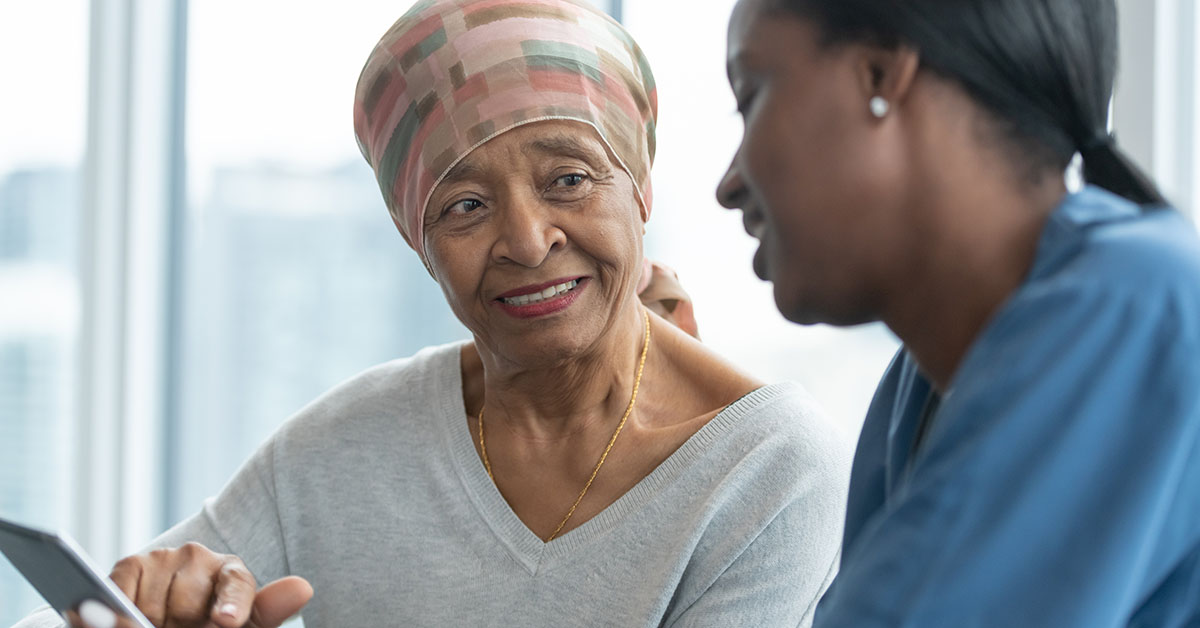
What Everyone Should Know About Clinical Trials
-
There’s a big spotlight on the clinical trial process these days due to the rollout of the COVID-19 vaccine. But clinical trials aren’t just for vaccines. If you or a loved one are undergoing cancer treatment, it’s worth learning about cancer clinical trials and how they benefit current and future patients.
The Basics of Clinical Trials
Clinical trials are studies that look at new ways to prevent or treat diseases (such as cancer). Trials in the United States are usually overseen by an Institutional Review Board (an independent committee established to review and approve research involving human participants) and reviewed by the U.S. Food and Drug Administration (FDA). They are run by investigators who’ve been trained and certified to conduct human studies and maintain proper clinical practices.
“Clinical trial conduct is governed by a very strict, internationally accepted standard of principles,” said Crystal S. Denlinger, MD, FACP, a gastrointestinal medical oncologist and Deputy Director of the Early Clinical Drug Development Phase 1 Program at Fox Chase Cancer Center. “There are many, many regulations in place to protect the safety of clinical trial participants.”
Patients interested in joining trials first go through an informed consent process.
“The trial investigator will discuss the protocols, the goals of the trial, what we know about the therapy, and any alternatives,” Denlinger explained.
Patients will then sign a document agreeing to participate, but it’s not a binding contract.
“You can withdraw from a clinical trial at any time for any reason,” Denlinger said. “It won’t affect the rest of your care in the slightest.”
Prospective participants are then screened to confirm that they’re an appropriate candidate for the trial. That might involve completing questionnaires or undergoing tests, bloodwork, or biopsies. If you are being treated for a disease, you may need to stop your current treatment during the screening process.
Once someone is deemed eligible for a clinical trial and has formally enrolled, they will then start receiving the therapy.
Clinical Trial Phases
There are various phases of clinical trials that are focused on investigating different things.
Phase 1 clinical trials are very small and are primarily concerned with determining the best dose of the potential treatment that can be given safely without causing severe side effects.
As trials move into Phases 2 and 3, they become larger, and the investigators focus more on whether the therapy is effective and better than the current treatment standard.
“By Phase 3, the hypothesis is that the therapy being investigated may be better than current standard-of-care therapies,” Denlinger said. “And we’re testing it on a larger group because we know it’s safe and there is some early signal that the intervention is effective.”
What About the COVID-19 Vaccine Trials?
The clinical trials for the COVID-19 vaccines were structured just like any other trial in order to receive Emergency Use Authorization by the FDA, Denlinger said.
“They had Phase 1 safety and bigger Phase 3 studies, which involved tens of thousands of patients. They were held to the same set of regulations and principles that any cancer therapy trial is subjected to, so the same parameters that govern cancer clinical trials also governed the COVID-19 vaccine trials,” Denlinger explained. “The trials demonstrated what can be done when everyone works together towards a common goal, research funding is channeled appropriately, and safety and ethical regulations stand.”
Clinical Trials at Fox Chase
The robust clinical trial program at Fox Chase is part of what puts us at the forefront of cancer care.
“We have about 250 active clinical trials at any given time, ranging the spectrum from prevention to treatment and beyond,” Denlinger said. “That gives you access to cutting-edge therapies before they are available to the general population.”
We also offer clinical trials for all stages of the cancer journey—from diagnosis through survivorship.
“There are a variety of trials for every stage along the treatment continuum,” Denlinger said.
